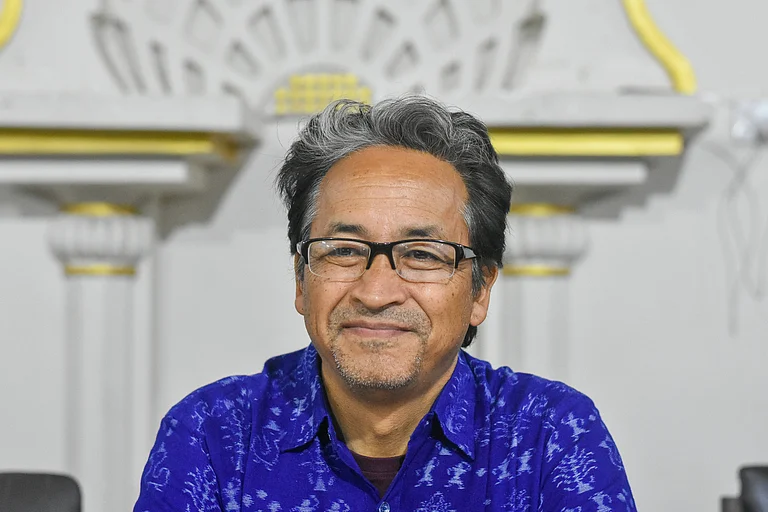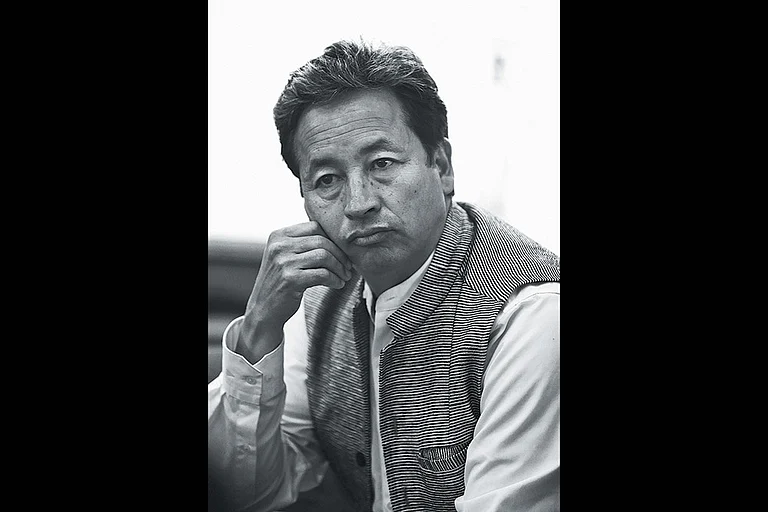
Summary of this article
- The government cancelled Sonam Wangchuk’s SECMOL FCRA license.
- Wangchuk stated the organizations do not rely on foreign funds but occasionally generate revenue from exported knowledge.
- Political leaders, including Farooq Abdullah, Congress, and AAP’s Arvind Kejriwal, condemned the government’s actions.
The Central Government has cancelled the FCRA license of Sonam Wangchuk’s Students’ Educational and Cultural Movement of Ladakh (SECMOL), just a day after violent protests erupted in Leh over demands for statehood and Sixth Schedule inclusion. The cancellation, issued under Section 14(1) of the Foreign Contribution (Regulation) Act (FCRA), 2010, takes immediate effect.
Officials said the Central Bureau of Investigation (CBI) has initiated an inquiry into alleged FCRA violations at Wangchuk’s Himalayan Institute of Alternatives Ladakh (HIAL) and SECMOL.
No FIR has been registered yet, but the CBI has requested details of foreign funds received by the organizations between 2022 and 2024. Wangchuk said the CBI acted on a complaint from the Ministry of Home Affairs, and claimed that the institutes do not rely on foreign funding but occasionally export knowledge to generate revenue, which authorities reportedly considered foreign contributions.
The political fallout from the Leh unrest has been significant. Farooq Abdullah, JKNC chief, attributed the violence to frustration over long-standing demands, noting Wangchuk had been on a 14-day hunger strike and had walked barefoot from Leh to Delhi to press for statehood and Sixth Schedule recognition.
Congress called Ladakh’s demands “legitimate and just” and blamed the BJP government for escalating the crisis, which left four dead and at least 80 injured, including 40 police personnel.
AAP chief Arvind Kejriwal criticized the BJP for centralizing power and undermining constitutional rights, describing the events in Ladakh as “extremely alarming” and a threat to India’s democratic values.
The cancellation of SECMOL’s FCRA license and the ongoing CBI inquiry add another layer of tension to an already volatile situation in the region, intertwining questions of governance, civil rights, and local aspirations.






















